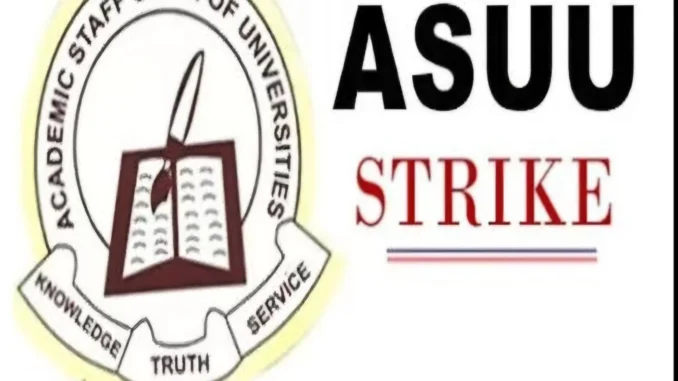
ASUU Raises Alarm Over Federal Government’s Delay in Talks
The Academic Staff Union of Universities (ASUU) has once again expressed deep concern over what it described as the federal government’s inconsistent and slow approach to the ongoing renegotiation of its agreements with the union.
The warning came from the National Executive Council (NEC) of ASUU following its meeting held on November 8–9, 2025, at Taraba State University, Jalingo.
In a statement signed by ASUU President, Prof. Chris Piwuna, the union cautioned that continued government inaction could have “grievous consequences” for Nigeria’s education sector, especially as universities struggle to recover from prolonged disruptions.
Background: Suspension of ASUU Strike and Unfulfilled Promises
ASUU recalled that during an emergency session on October 21, 2025, it suspended its earlier warning strike in good faith. The decision, according to the union, was made out of respect for Nigerian students, parents, the media, and the Nigeria Labour Congress (NLC), who had appealed for dialogue.
However, the suspension was based on the expectation that the federal government would take advantage of the one-month grace period to conclude renegotiations and implement agreed terms.
Sadly, ASUU noted that “progress since then has been unimpressive,” adding that the government has shown little urgency or sincerity in resolving the key issues affecting university workers.
ASUU Rejects Proposed Salary Increase Calls It “A Drop in the Ocean”
Addressing one of the most contentious issues, ASUU rejected the proposed salary adjustment put forward by government negotiators, describing it as inadequate to tackle the long-standing brain drain in the university system.
The union argued that the proposed figures do not reflect the realities of inflation or the value of academic labour, insisting that lecturers deserve a living wage.
While the union acknowledged some modest progress in non-monetary matters, it emphasized that salaries, allowances, and improved conditions of service must be treated with urgency and sincerity.
Misrepresentation and Communication Gaps
ASUU also accused certain government officials of misrepresenting facts about the renegotiation process and exaggerating minor interventions such as part payments of promotion arrears and the release of third-party deductions.
The union cautioned that such actions were counterproductive, saying:
“Government’s objective must not be to win the narrative but to solve the problems.”
ASUU warned that this communication gap and half-truths could further undermine trust and derail meaningful progress in negotiations.
“Nigeria Can Fund Education” ASUU Refutes Paucity of Funds Claim
To counter the federal government’s frequent claim of limited financial capacity, ASUU presented new figures from the Federation Accounts Allocation Committee (FAAC) to show that Nigeria’s revenue has grown significantly in recent years.
According to the union:
- State allocations rose from ₦3.92 trillion in 2022 to ₦5.81 trillion in 2024, marking a 62% increase.
- Federal allocations increased from ₦3.42 trillion in 2022 to ₦4.65 trillion in 2024, a 70% growth.
“Contrary to the claim of paucity of funds, these figures show that the problem is not economic but political a lack of will to prioritize education,” the statement read.
ASUU maintained that investment in education remains the most reliable way to secure Nigeria’s future, urging the government to demonstrate genuine commitment rather than excuses.
ASUU Appeals for National Support
The NEC called on traditional rulers, labour unions, student bodies, civil society organizations, and patriotic Nigerians to continue mounting pressure on the government to act responsibly.
“The surest way to protect the future of our country is to invest in education,” ASUU reiterated.
The union also reminded the government that failure to act within the remaining days of the one-month negotiation window could trigger fresh industrial action, a move it said it would prefer to avoid.
Conclusion
ASUU’s latest statement underscores the urgency of resolving the long-standing government-university impasse. The union insists that if Nigeria truly values education as the foundation of national development, it must back words with action by investing adequately in lecturers, facilities, and research.
The coming weeks will determine whether the federal government will respond decisively or allow the cycle of strikes and broken promises to continue.
Leave a Reply